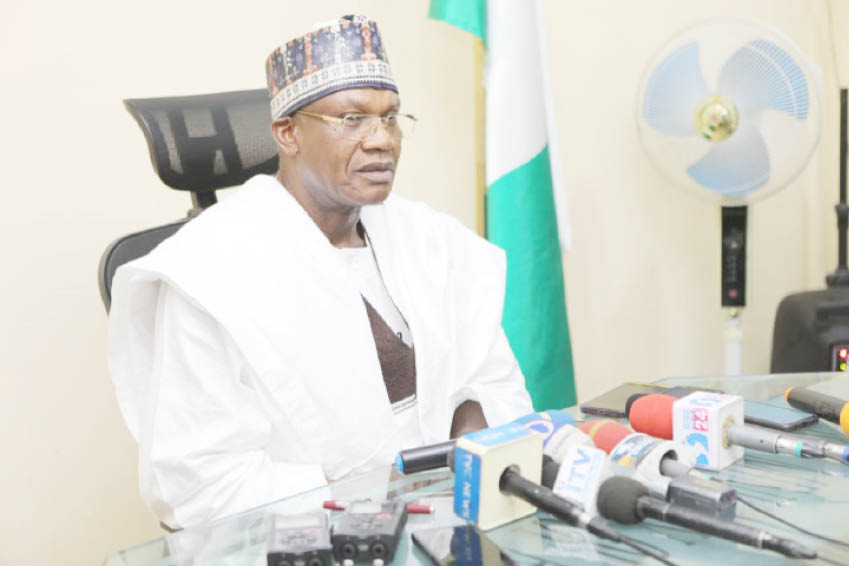Last week, Nigeria’s Minister of Education, Tahir Mamman, stated his plans to enforce a policy that would ban students who are below the age of 18 from taking the Senior School Certificate Examination (SSCE) organised by the West African Certificate Examination (WAEC) and the National Examination Council (NECO).
These examinations are usually taken in the final year of secondary school, and they are the pathways to securing a spot in university.
He stated that students should begin primary school at the age of six, spend six years in primary school, move to junior secondary school at the age of 12, spend three years, before moving to senior secondary school at the age of 15, to spend three more years, and leave for university at the age of 18.
This decision does not consider students who graduate from secondary school when they are between the ages of 15 and 17, and how long they would have to wait, should this poorly thought-out policy become effective.
- NIGERIA DAILY: How Victims Of Flooding Struggle To Get Back On Their Feet
- Nigerian Exporters Hub appoints Mr. Babatunde Faleke as new Managing Director
Strikes in federal and state universities have made students to spend 10 years – or even more – in school for four or five-year courses. Between students waiting till they turn 18 (if they finish secondary school before that age), and having their education paused due to strikes is more than frustrating.
As of 2023, data from UNESCO suggested that one out of every five out of school child is from Nigeria. This age limit will make these numbers worse. Children who are done with secondary school before they turn 18 would have to endure a period of idleness when ideally, they should be starting university. This could give room for vices like crime and drug abuse to consume them.
The Standardised Aptitude Test (SAT) and the International General Certificate of Secondary Education (IGCSE) are the equivalent of Nigeria’s SSCE for America and the United Kingdom respectively. Although both examinations are primarily for students in their final years of high/secondary school, students of any age can register and take the exams. This leniency shows that it is understood that there are students who may not be “of age”, but would still benefit from taking the exams.
Education in Nigeria is at an all-time low, and there are many more serious issues that do not pertain to age limits for examinations and admissions that should be taken care of; the curriculums across all levels of education are in need of serious updates and changes, teachers need better welfare and training, and schools need to be equipped with better infrastructure.
Additionally, the minister did not provide a solid answer when asked about children who were extraordinarily excellent in academics; keeping them in classes that are appropriate for their age but not their mental abilities does them more harm than good. All over the world, there have been – and there still are – brilliant children who have contributed to various fields. If they were restricted by their ages, their talents would have stayed half baked, and they would not have realised their full potential.
A developing country like Nigeria which struggles with education should encourage people to go to university so that they can contribute their quota to their chosen field. The education minister’s move to enforce this age requirement policy will only discourage university enrolment – if anything.
Young girls who have justzfinished secondary school are also bound to suffer the effects of this policy. Instead of letting them wait till they are of age to enrol in a university, they will be married off – maybe with the promise that they will continue their education in due time – and that is where the conversation of their education ends.
Keeping girls in school is one of the most effective ways to prevent child marriage, and this policy, combined with our deeply patriarchal society, will just make things worse.
Nigeria should emulate the programmes that other countries like England and America have for gifted and talented students. There should also be room for accelerated learning so that children with a lot of mental might can learn on the right level.
Granted, Nigerian parents often rush their children by making them skip the last year of primary school, and more recently, secondary school (SS3). They do this even when their wards are not yet ready for the next academic journey.
However, there are other ways to deal with this common practice – and enforcing a general rule is not the way to go. A system can be established whereby schools give approval to students who are not yet 18 but would like to enrol in a university.
Judging students on a case-by-case basis would make more sense; and since it is done by their schools where they have spent several years learning, the decisions will be more well thought out.
Many Nigerians do not agree with this policy – and rightfully so. It is simply a bad one. We all hope that the Minister of Education gives it a second thought – and hopefully, something better is decided when he does.
Zainab Muhammad is a journalist and Mass Communication student at Pan Atlantic University, Lagos.

 Join Daily Trust WhatsApp Community For Quick Access To News and Happenings Around You.
Join Daily Trust WhatsApp Community For Quick Access To News and Happenings Around You.


